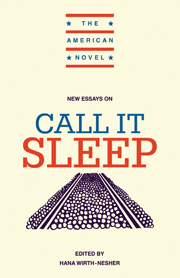Book contents
- Frontmatter
- Contents
- Series Editor's Preface
- Dedication
- 1 Introduction
- 2 The Many Myths of Henry Roth
- 3 Shifting Urbanscape: Roth's “Private” New York
- 4 The Classic of Disinheritance
- 5 Henry Roth in Nighttown, or, Containing Ulysses
- 6 Roth's Call It Sleep: Modernism on the Lower East Side
- 7 “A world somewhere, somewhere else.”
- Notes on Contributors
- Selected Bibliography
- Plate section
3 - Shifting Urbanscape: Roth's “Private” New York
Published online by Cambridge University Press: 05 June 2012
- Frontmatter
- Contents
- Series Editor's Preface
- Dedication
- 1 Introduction
- 2 The Many Myths of Henry Roth
- 3 Shifting Urbanscape: Roth's “Private” New York
- 4 The Classic of Disinheritance
- 5 Henry Roth in Nighttown, or, Containing Ulysses
- 6 Roth's Call It Sleep: Modernism on the Lower East Side
- 7 “A world somewhere, somewhere else.”
- Notes on Contributors
- Selected Bibliography
- Plate section
Summary
Since the end of the fifties a minor legend has grown around the figure of Henry Roth, long known to the literary world as a one-novel author. There are many chapters in this legend: the early success of Call It Sleep, the writer's block that paralyzed Roth soon afterward, his disappearance from the literary scene at the beginning of the forties, his burning of the manuscript of a second novel for which Scribner's had advanced one thousand dollars, his rediscovery as a waterfowl farmer in Maine, the revival of Call It Sleep in the early sixties and its subsequent recognition as one of the masterpieces of twentieth-century literature. Recently, another chapter was added with the publication of A Star Shines over Mt. Morris Park, the initial section of a multivolume opus with the general title of Mercy of a Rude Stream. The appearance of the new work has disclosed a fact of which only few had been aware: In 1979, at the age of seventy-three, Henry Roth had resumed writing in a regular and highly disciplined way, and this belated, miraculous outburst of creativity has resulted in a “novel in memoir form,” as he calls it, which is well over 4,000 pages long.
So the Roth legend continues to grow. It is a legend that over the course of half a century has accrued by the slow accumulation of disconnected fragments of a unique, decidedly odd existence in and out of the literary world and of the public eye.
- Type
- Chapter
- Information
- New Essays on Call It Sleep , pp. 29 - 60Publisher: Cambridge University PressPrint publication year: 1996



